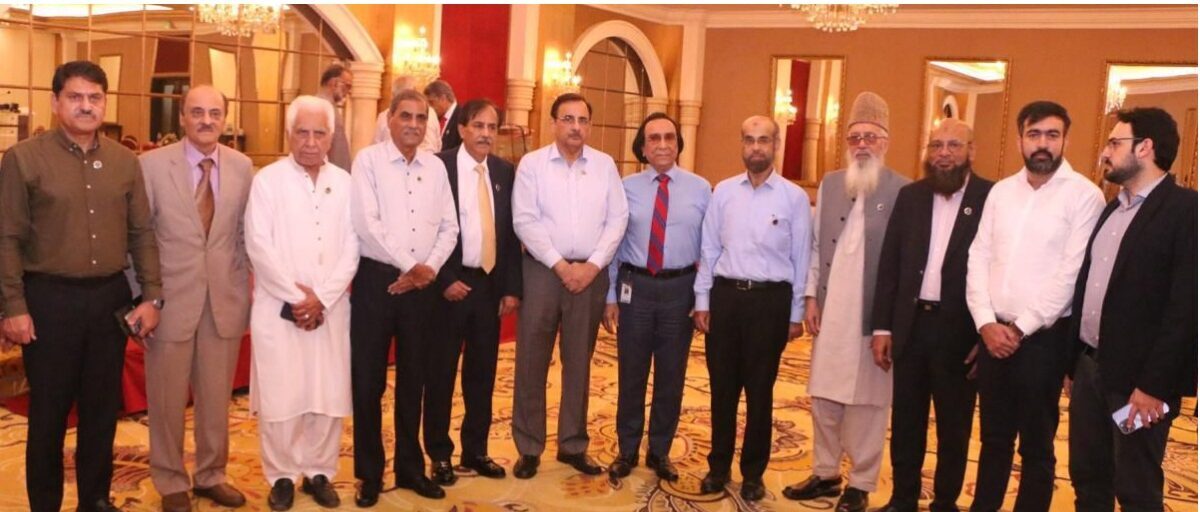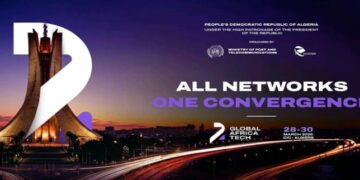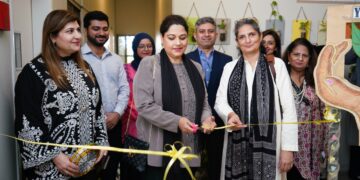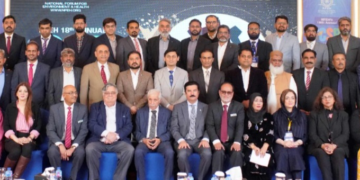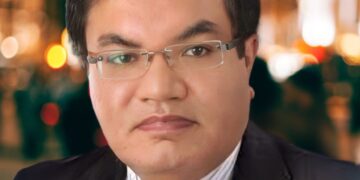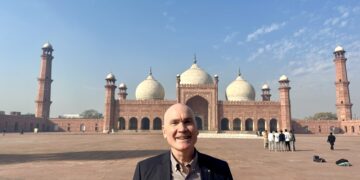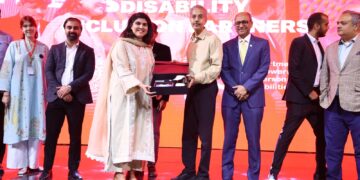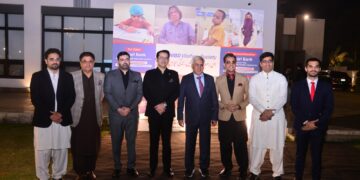A group photo of the participants at the “National Economy and Trade Bodies” meeting organized by the Businessmen Panel, featuring BMP Chairman Anjum Nisar, former FPCCI President Mian Naseer Hayat Mago, Suleman Chawla, Haji Ghani Usman, Amjad Rafi, Shokat Suleman, Khalid Ameen, Aun Ali Syed, and others.
Karachi: Former President of the Federation of Pakistan Chambers of Commerce and Industry (FPCCI) and Chairman of the Businessmen Panel, Mian Anjum Nisar, stated that the economic conditions in Pakistan are deteriorating. He blamed Independent Power Producers (IPPs) for destroying the national economy. He noted that not only is it difficult to establish new industries, but even existing ones are struggling. He supported small traders in their protest against turnover tax and urged the government to engage with them before it’s too late. He announced his support for the small traders’ strike scheduled for August 28.
Nisar expressed these views during a meeting titled “National Economy and Trade Bodies” organized by the Businessmen Panel at a local hotel. The event was hosted by Mian Naseer Hayat Mago, former President of FPCCI and Senior Vice Chairman of the Businessmen Panel. Other speakers included former FPCCI Presidents Zakariya Usman and Abdul Rahim Jano, and Suleman Chawla and former Vice Presidents Hanif Lakhani. The event also saw participation from former REAP Chairman Rafiq Suleman, Amjad Rafiq, Khalid Ameen, Shoaikat Suleman, Muhammad Bashir, Haji Ghani Haji Usman, Javed Ilyas, Aun Ali Syed, Wasim Rahman, and other leaders.
Mian Anjum Nisar highlighted that the IPPs have led to a catastrophic economic situation in Pakistan, with money rapidly flowing out of the country and investors fleeing to acquire citizenship in other nations. He also mentioned that the IT industry is on the brink of collapse due to internet issues, with Pakistani freelancers struggling to find work because of slow internet speeds.
Nisar pointed out that Pakistanis have purchased $11 billion worth of properties in the UAE, yet there is no clarity on who these investors are. He criticized the government’s imposition of a 60,000-rupee advance tax on small traders despite having three categories for them, arguing that this discourages new tax compliance and that a more moderate tax policy could yield better revenue.
He also accused the ruling group in FPCCI of using the chamber as their private domain and alleged that they are working to undermine him in the Lahore Chamber elections.
Mian Naseer Hayat Mago, Senior Vice Chairman of the Businessmen Panel, spoke about how global trade with neighboring countries like Iran, Afghanistan, and India has stalled.
Mago suggested that Pakistan could benefit from corporate farming in cotton, given the favorable climate in Balochistan similar to China’s. He also criticized the IPP agreements, suggesting that many IPP deals signed in 2015 were far beyond what was necessary and have led to the country’s current difficulties.
Zakariya Usman, a prominent businessman, proposed that the government should reduce sales tax to 5% across the board to increase collections and provide relief to the public. He questioned why the government continues to pay IPPs for electricity that is not being used, given that 52% of IPPs are owned by the Punjab government, which could renegotiate the terms to benefit the public.
Former Senior Vice President Abdul Rahim Jano mentioned that while temporary difficulties persist, it’s important to maintain group activities and strengthen connections with the business community to achieve success in future FPCCI elections.
Former Vice President Hanif Lakhani emphasized that the government needs to address economic issues, particularly reducing electricity and gas rates to prevent industries from shutting down and to meet export targets, which currently seem challenging.





